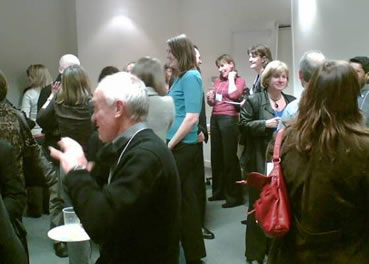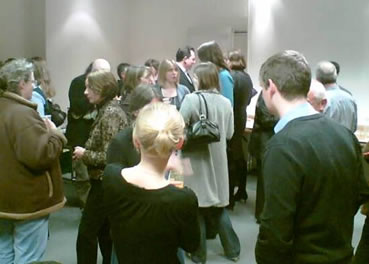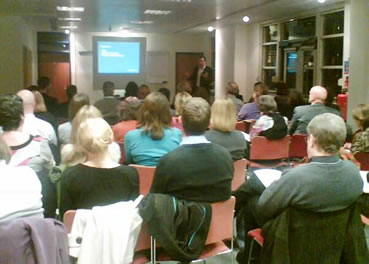|
MORE DETAILS
|
EVENING BRIEFING - 5 MARCH 2008 - OXFORD
|
The following summary was kindly prepared by Marian East of MedSense.
The art of CME, or how to do CME and make it look easy was one of the take away messages at the Network Pharma meeting, held last week in Oxford. Eugene Pozniak has worked in the industry for 20 years, the last eight of which he has spent working exclusively in CME and has clocked up over 250 hours of accredited CME programmes. He shared this expertise with a group of Med Ed professionals, many of whom have worked in CME programmes during the past year, yet still had many questions and comments on how, where and when they should recommend the CME option to their clients.
Eugene explained the different names for CME across Europe and more importantly, differentiated between those countries that have mandatory CME and those with voluntary programmes. The implications of CME accreditation varied from non existent to affecting physician’s salaries and career progression.
CME can broadly be provided by meetings, e-learning and journals. In the US, CME accreditation can be applied to many more options, such as posters; although whether these other styles of output are measurable and effective can occasionally be questionable.
The rationale for holding a CME meeting compared to an open stand alone meeting was discussed, explaining the benefits and the disadvantages to the sponsoring companies.
The key benefit of CME meetings is the opportunity for pharma is to enhance their company profile by supporting education with an unrestricted grant. This enables faculty to give balanced presentations, such as new clinical data, personal experiences or debating specific issues, without promotional pressure being exerted on them by the sponsor. Any company that pressures faculty to promote their product under the guise of education will lose credibility with the audience and run the risk of such abuse being reported to the accrediting bodies.
E-learning is still in its infancy, with CME bodies still uncertain on the optimum method of structuring the programme and more importantly, evaluating them. Lack of technical knowledge has further slowed the e-learning options outside the US. Any e-learning software should not reside on pharmaceutical platforms to avoid any question of bias or misuse of the data from physicians.
Journal articles can provide CME learning. Again, due to the static nature of reading written copy only and answering questions in isolation from other interactive teaching makes it more difficult to assess. A system along the lines of the one used in the US, where the reader completes a questionnaire to test the knowledge assimilated and completes an evaluation form in order to claim a CME certificate, is starting to take hold in Europe.
In conclusion, Eugene explained the three step process in successful CME programmes: 1) Planning the activity and the accreditation process, 2) Implementing the activity and 3) post activity evaluation, outcomes and follow on activities.
With careful, strategic planning and avoiding undue influence on the content by pharma, CME has an effective place in the dissemination of medical education within an ethical and clinically relevant format.
The evening concluded with questions from the audience and a reassurance that perhaps we are doing CME right after all!
To make sure you're included in announcements about future events just email Peter Llewellyn, if you haven't already done so, to register your interest.



|
|
|

